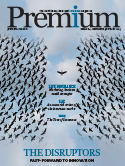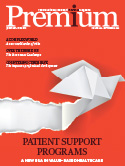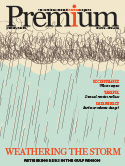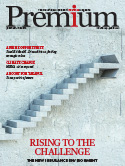EIA cautions against competitive pricing
The Emirates Insurance Association organised the seventh Annual Health Insurance Conference for the insurance industry within the UAE.
Delivering the patronage speech, Hamad Al Mehyas, vice chairman of the EIA and the chief executive officer of the National Health Insurance Company – Daman, remarked on the role of the insurance industry in supporting the effort against the pandemic. “The Emirates Insurance Association is strongly committed to enhancing the reputation of the nation’s health sector and we aim to do this by leveraging relations with the insurance companies and medical service providers. Those strong relationships are the foundation of the insurers and the collective greatness of our industry. Together we can shape its bright future.“
Speaking about the effects of the pandemic on economic growth, Al Mehyas said: “It is without doubt that the pandemic effects have also been felt on the balance sheet and the degree of effect brings the questions of sustainability. As representatives of this ever-growing sector we need to look inwards and assess our practices on sustainability of our companies and the whole industry. The pandemic has given us the opportunity to see our resilience in a scenario where no one has ever prepared or even thought of, giving us the framework to rework, reprogram and renew what we do. Those risky financial practices including predatory pricing helps no one, even those who practices it. As the pandemic has shown us that without healthy margins sustainability becomes an immediate risk.”
“At the end of the day the client cares more about whether we can pay their claims or not. The commercial pricing is as important as medical claims but not the only one factor that clients will look at. The reputation of the market falls on all of us. We must do our part in supporting the economy, the insurance sector, health care sector and all others,” he cautioned.
Commenting on the need for a healthy population that would be socially and economically productive and contribute to economic growth, Dr. Amin Hussain Al Amiri, assistant undersecretary of Public Health Policy and Licensing, Ministry of Health and Prevention, said that it was imperative that the health insurance industry played their role in controlling the rising health care cost. Admitting that many insurers were yet to to update their systems with the latest innovative drugs, he said the insurance industry had to support the health sector by being a strategic partner.
Besides looking only at claims and the cost, he said insurers needed to show an understanding towards the humane side of the pandemic crisis. He added that insurers needed to embrace innovation and support quick access of innovative health practices for patients who required it. He also advocated the adoption of evolving healthcare delivery models and new channels such as telemedicine, e-prescription, and telediagnostics. More importantly, he advised insurance companies to encourage preventive care by using technology solutions to offer fast access to services, such as wearables.
He offered support towards a regulation or system that would connect insurance to the duration of residency visas which would enable insurers to work towards an innovative, sustainable model of care and the adequate time required to invest in technologies such as wearables, which would in turn reduce the economic burden on health care.
Observing that preventive care is a huge focus for the regulators, Ali Fareed Lutfi, head of Payer Regulation at the Dubai Health Authority, said that the Dubai Health Insurance Corporation would be centering their efforts on premium regulations that would permit the insurance industry to work in this direction. He gave an overview of the implementation of DRGs in Dubai.





































